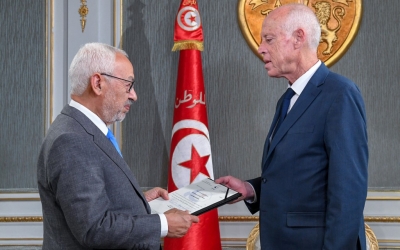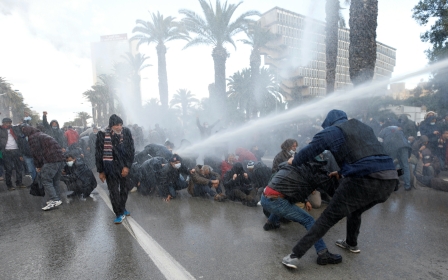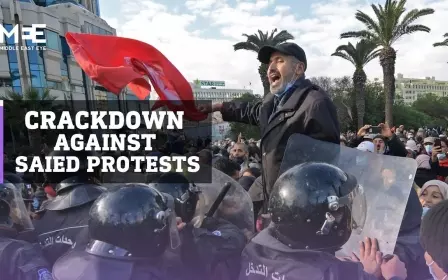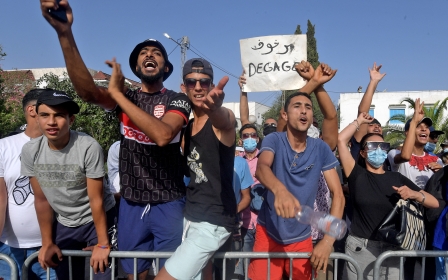Tunisia: Rights groups warn freedoms at risk following crackdown on protest
Tunisian human rights groups have warned that freedoms in the country are at risk following a police crackdown on a protest last week against President Kais Saied's seizure of governing powers.
Yassine Jelassi, the head of the Tunisian National Journalists' Union (SNJT), told reporters on Tuesday that citizen's freedoms were in "imminent peril" after police fired tear gas and used water cannon on Friday to disperse hundreds who gathered in Tunis to rally against Saied on the 11th anniversary of the Arab Spring revolution.
"A police and security mentality is running the state... Tunisia has become a country which suppresses freedoms," Jelassi said at the event that was organised in conjunction with 21 human rights groups.
He said the attempt by the police to disperse protesters was "a political decision that proves that the state still uses the security apparatus to solve its political crises.
"The organisations gathering today call on the Head of State to apologise and honour his commitments regarding rights and freedoms," state news agency Tap quoted Jelassi as saying.
Tunisia plunged into chaos on 25 July when Saied seized vast powers in a plot leaked to Middle East Eye two months earlier.
Saied cited skyrocketing unemployment, rampant corruption, and the coronavirus pandemic as reasons to suspend parliament, sack the prime minister, and grant himself prosecutorial powers.
Last month, he extended the suspension of parliament, announcing that a referendum on constitutional reform would be held in July 2022, followed by parliamentary elections in December.
The move has been rejected by the majority of political forces, including the country's largest workers' union, the UGTT.
On Tuesday, Saied also announced that he was extending the state of emergency by a month until 18 February.
The country has been locked in a state of emergency since 2015 when several presidential guards were killed in an attack.
Middle East Eye delivers independent and unrivalled coverage and analysis of the Middle East, North Africa and beyond. To learn more about republishing this content and the associated fees, please fill out this form. More about MEE can be found here.





